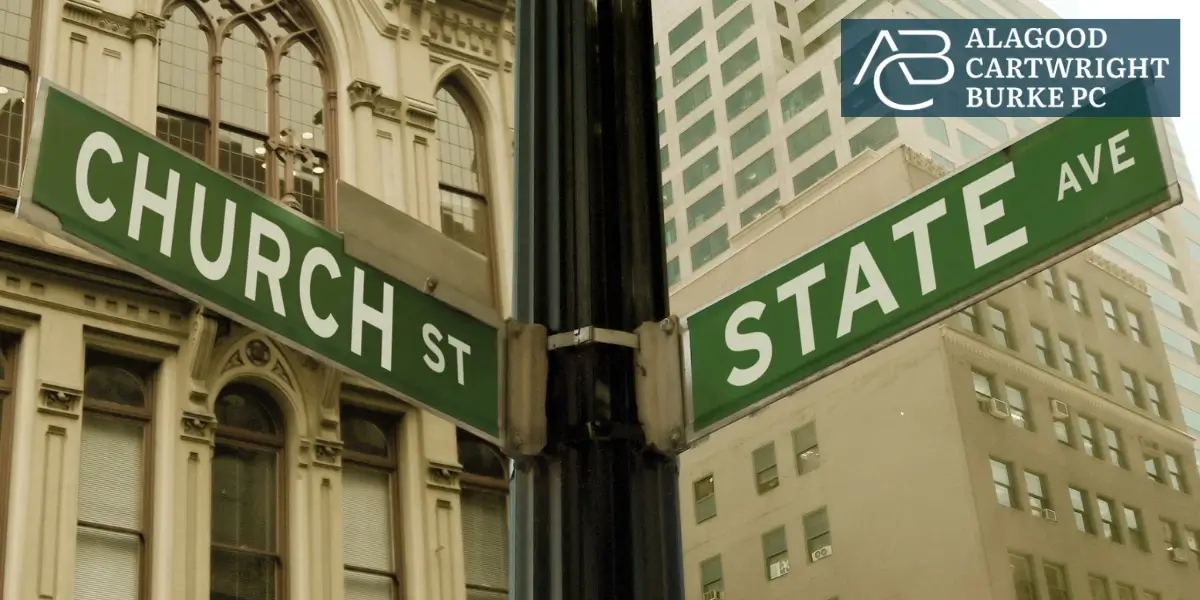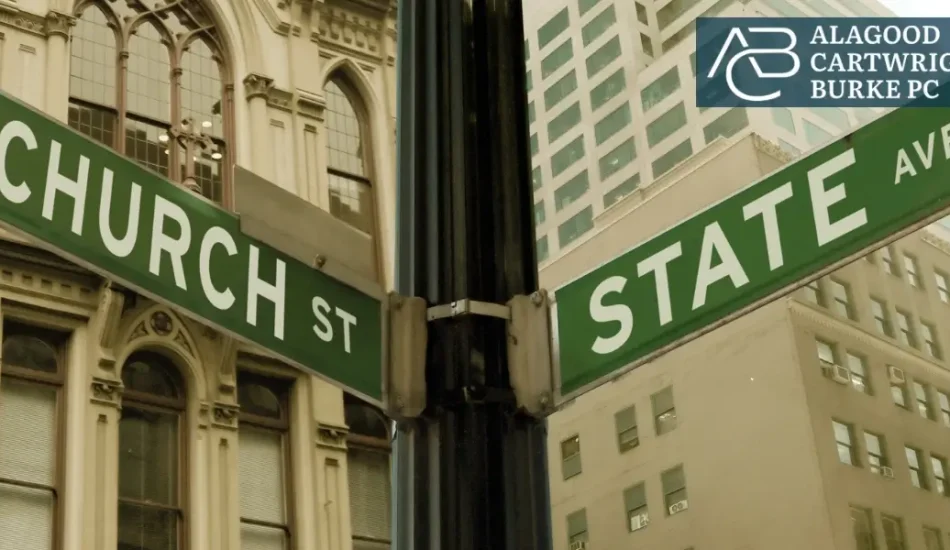|
|
Last
Modified on
Oct 09, 2025
Many people don’t understand exactly what the term “eminent domain” means. Most people do know that, under eminent domain, the government can take someone’s private property without regard for their wishes. This poses questions, though, like, “Do churches have special protection from eminent domain in Texas?” Unsurprisingly, the answer isn’t as easy as “yes” or “no.”
Eminent Domain Is a Constitutional Right
While it is a legal act for governments to take land from private property owners, it is the constitutional right of the landowners to be fairly compensated for what the government takes. This right promises payment for land taken with eminent domain, and it is included in the Constitution. This constitutional guarantee of compensation is the foundation for legal claims, including specific scenarios known as inverse condemnation. It’s written within the Fifth Amendment alongside the right to remain silent.
Nevertheless, state laws in Texas further define the power of government over private property. Texas Property Code 21 outlines the standard process for condemnation, which is the term for the legal process of taking private land through eminent domain.
Texas eminent domain laws are more in favor of the property owner in that, for one, the property can only be taken for public use and not for contribution to financial development. Another unique facet of Texas eminent domain laws is found in Proposition 11. This law prevents the government from taking advantage of property owners by banning unbridled seizure without careful designation.

How to Fight Eminent Domain
There are three main channels for contesting eminent domain, but they are not likely to stop the government from taking private property. They may, however, thwart efforts for the time being. If you hire an eminent domain lawyer, they can determine the exact approach to take and if fighting eminent domain is worthwhile in your church’s situation. This legal guidance is particularly critical from the very beginning, especially right after a condemnation notice is received.
Public Use
First, a property owner can claim that the intended use of the property is not public use. Typically, public use is the construction of bridges, roads, or government buildings. In Texas, the majority of condemnation petitions are for the use of “municipal utility” or “water district,” which is further defined as utility and irrigation. Other petitions for condemnation in Texas included the following:
- City use
- Independent school district
- Other non-governmental entity
- Pipelines and related facilities
- Other governmental entity
- County use
- Hospital and emergency services
- Railroad
- Telephone/communication
- Community college
Unjust Offer
Second, a property owner can contest the monetary offer made for the property, claiming it is unjust. Ultimately, the court has jurisdiction over whether an offer is just. This strategy is sometimes undermined by a pre-appraisal that determines fair market value, along with other efforts that go into putting a price on private land to be taken for public use.
Special Use and RLUIPA
Third is the defense that a property is a special-use one. It is difficult to value these properties, and they are often undervalued in eminent domain cases.
Also, a church can cite the Religious Land Use and Institutionalized Persons Act, also known as RLUIPA. This federal law is sometimes an effective protection when zoning or land use arguments are relevant. However, it’s not always impactful when fighting eminent domain.
In many cases, there are many influences on the price of land in eminent domain cases. The governing agency responsible for the land seizure, the appraiser, and even the property owner are often involved in pricing. In some cases, a special commission is even appointed to research the case in-depth and determine a fair and just offer for the land.
Do Churches Have Special Protection From Eminent Domain in Texas?
So, the answer to the question, “Do churches have special protection from eminent domain in Texas?” is technically no. In Texas, there is no exemption of eminent domain for churches, specifically. Precedent cases disputing condemnation in Texas have set a standard that does not give churches a pass for simply having religious-use property.
Why Choose Us?
The lawyers at Alagood Cartwright Burke PC hold themselves to high standards. As a result, we have a consistent, successful record of proven results. We make a point to stay current on changes in laws, the passage of new laws, and industry trends. By understanding the laws, we use them to challenge the power of eminent domain and protect the rights of our clients.

FAQs
Does Eminent Domain Apply to Churches?
In most cases, yes, eminent domain also applies to churches. Under state and federal laws, a government can seize church land. However, just as it is the right of an individual property owner to be compensated for the land that is taken, the church must be compensated justly. Furthermore, the land must be used for public purposes and not for economic gain. Often, churches choose to hire an eminent domain lawyer and fight the condemnation of their land.
What Properties Are Exempt From Eminent Domain?
There is actually no private property that is exempt from eminent domain. The government may exercise the power of eminent domain on any private property. However, the land taken must be used for the good of the public rather than for financial growth. Furthermore, a fair price must be paid for the land. There are some exceptions, such as land that is owned by a charitable organization, a religious structure, or a historical site, but even these aren’t 100% safe.
Has Anyone Ever Won Against Eminent Domain?
Yes, there have been cases in which property owners have won their case against a government agency attempting to exercise their power of eminent domain. While it’s not always worth fighting, and it’s not always going to work out in favor of the landowner, there is potential for winning these cases. To know if your case has a substantial chance of winning against eminent domain, contact an eminent domain attorney to discuss your situation.
What Is the Difference Between Eminent Domain and Condemnation?
Eminent domain is the fundamental right of the government to seize private property for public use. It is the government’s power to carry out condemnation. Condemnation is the legal procedure for exercising eminent domain. Condemnation includes the notifications, appraisals, hearings, valuation, and other components that are legally required for a government agency to take private property from a landowner.
How Can I Stop Eminent Domain in Texas?
To stop eminent domain in Texas, you will first need to hire an eminent domain attorney. They can advise you and determine whether you should challenge:
- The legality of the land’s use
- The justness of the offer made for your land.
A lawyer can work to gather evidence, submit a second opinion appraisal, protect your rights, and negotiate better terms on your behalf.
Hire an Eminent Domain Lawyer With Influence in Texas Courts
If you need a trusted Texas eminent domain attorney, the Alagood Cartwright Burke PC name is synonymous with respect and reputation in local Texas judicial circles. Let us put our experience to use for your case. Contact our office to schedule a consultation with a Texas eminent domain attorney. Our firm understands Texas laws and has the resources to assert your rights as a landowner.







